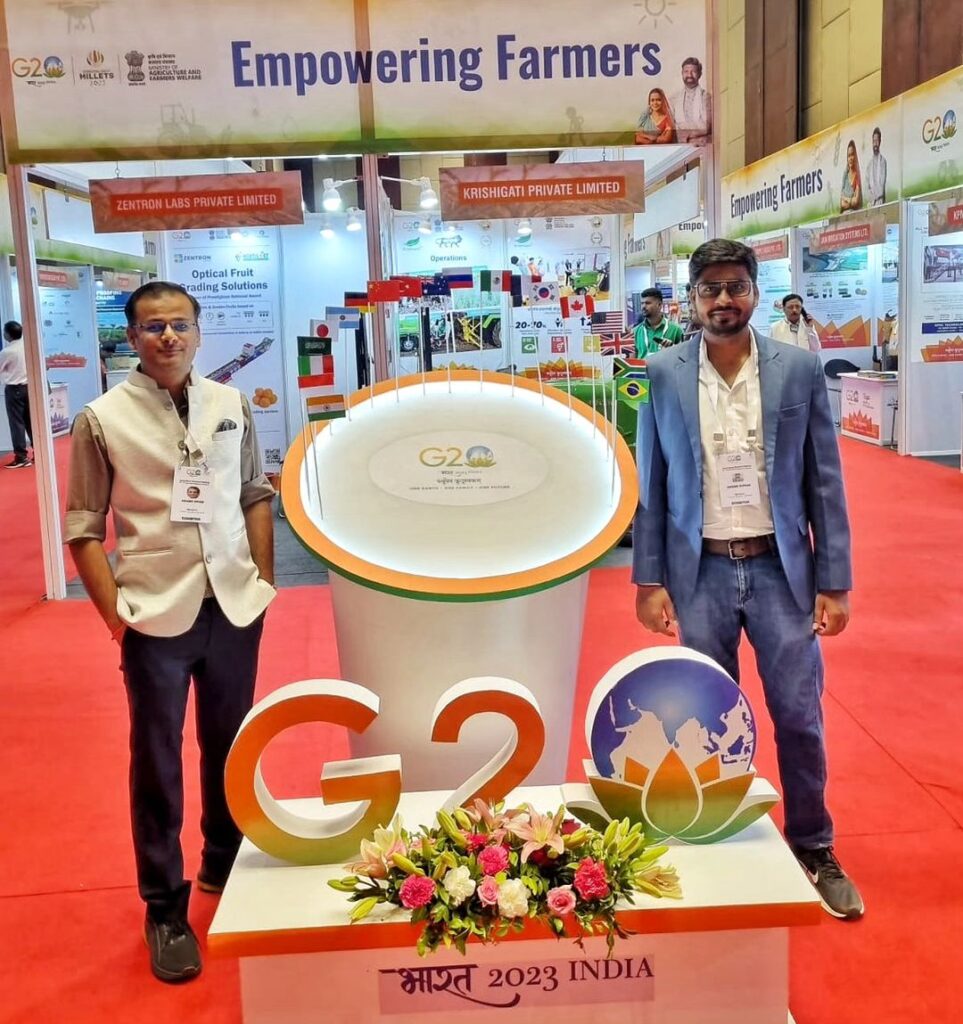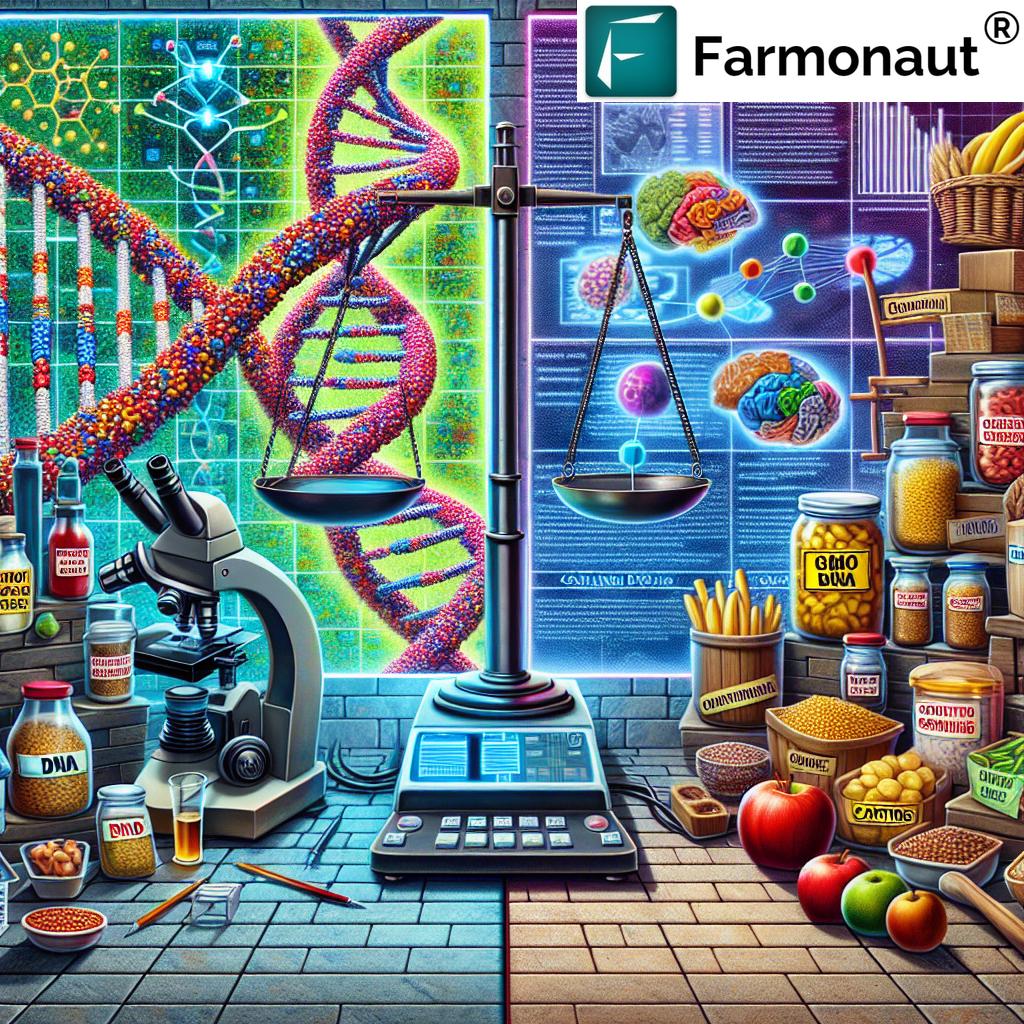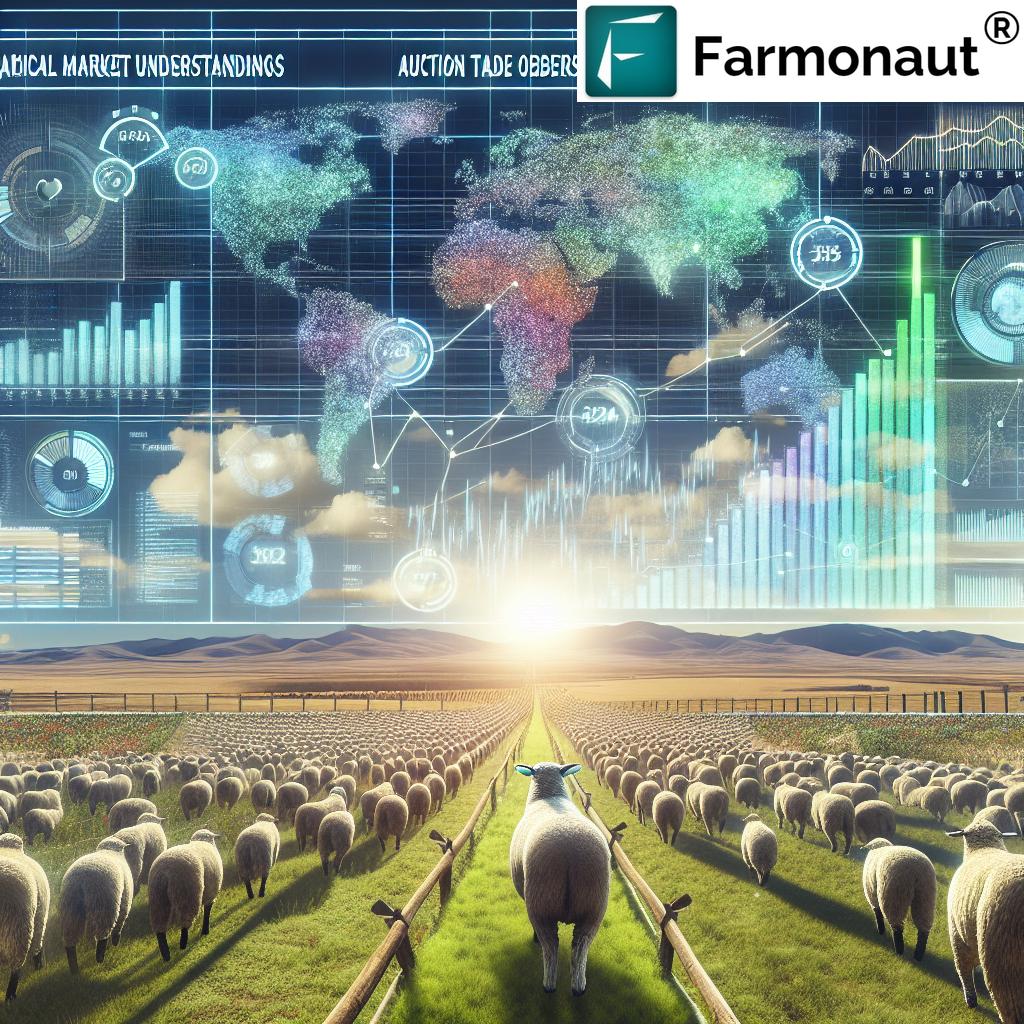Farmonaut and Fair Climate Fund Join Forces to Measure Carbon Footprint in Agriculture

We are thrilled to announce a groundbreaking partnership between Farmonaut and Fair Climate Fund to measure Carbon Footprint and Greenhouse Gas (GHG) Emissions from agriculture in Jammu-Kashmir, Uttarakhand, and Uttar Pradesh. This collaboration marks a significant step towards sustainable farming practices and environmental conservation in India.
The Partnership: A Step Towards Sustainable Agriculture
At Farmonaut, we have always been committed to leveraging technology for the betterment of agriculture. Our partnership with Fair Climate Fund aligns perfectly with our mission to make precision agriculture accessible and environmentally friendly. This collaboration will focus on:
- Measuring carbon footprint in agricultural practices
- Analyzing GHG emissions from farming activities
- Implementing sustainable farming techniques
- Promoting cleaner cooking and reforestation projects
Understanding Carbon Footprint in Agriculture
Before we delve into the specifics of our partnership, it’s crucial to understand the concept of carbon footprint in agriculture and its implications.
What is Carbon Footprint?
Carbon footprint refers to the total amount of greenhouse gases, primarily carbon dioxide, emitted directly or indirectly by an individual, organization, event, or product. In agriculture, this includes emissions from various farming activities, such as:
- Soil cultivation
- Livestock farming
- Use of fertilizers and pesticides
- Farm machinery operations
- Transportation of agricultural products
The Importance of Carbon in Soil
The
carbon in soil importance cannot be overstated. Soil organic carbon plays a crucial role in maintaining soil health and productivity. Here’s why it’s so important:
- Improved soil structure and water retention
- Enhanced nutrient cycling and availability
- Increased biodiversity in the soil
- Better crop yields and quality
- Carbon sequestration, helping to mitigate climate change
The Carbon Cycle in Agriculture
Understanding the
carbon cycle in agriculture is essential for implementing sustainable farming practices. The cycle involves:
- Carbon dioxide absorption by plants through photosynthesis
- Carbon storage in plant biomass and soil organic matter
- Carbon release through decomposition and respiration
- Carbon emissions from agricultural activities
Our partnership aims to optimize this cycle, promoting practices that enhance carbon sequestration and reduce emissions.
Fair Climate Fund: Our Partner in Sustainability
Fair Climate Fund brings a wealth of experience to our partnership. With their focus on cleaner cooking and reforestation projects, they have been at the forefront of climate action for over a decade. Their expertise includes:
- Implementing climate projects in developing countries
- Reducing CO₂ emissions and deforestation
- Improving living conditions in rural communities
- Fairtrade approach to climate strategies
- Extensive experience in carbon footprinting and offsetting
The Role of Farmonaut in this Partnership
As a pioneering agricultural technology company, Farmonaut brings cutting-edge solutions to this partnership. Our satellite-based farm management platform will play a crucial role in:
- Real-time monitoring of crop health and soil conditions
- AI-driven advisory for sustainable farming practices
- Blockchain-based traceability for transparent carbon tracking
- Resource management tools to optimize farm operations
Our technologies are designed to make precision agriculture affordable and accessible, which aligns perfectly with the goals of this partnership.
Farmonaut’s Satellite System: A Game-Changer in Farm Monitoring
Our satellite-based monitoring system offers significant advantages over traditional methods like drones and IoT devices. Here’s a comparison:
| Feature |
Farmonaut Satellite System |
Drone-based Monitoring |
IoT-based Monitoring |
| Coverage Area |
Large scale (entire regions) |
Limited (local areas) |
Very limited (specific points) |
| Frequency of Data |
Regular (every few days) |
On-demand (requires manual flights) |
Continuous (but limited points) |
| Cost-effectiveness |
High (no hardware required) |
Moderate (drone purchase and maintenance) |
Low (multiple sensors needed) |
| Ease of Use |
Very easy (accessible via web/mobile app) |
Requires trained operators |
Requires installation and maintenance |
| Data Analysis |
Advanced AI-driven analysis |
Manual interpretation often needed |
Basic data from sensors |
For more information on our satellite-based solutions, visit
Farmonaut App.
Measuring Carbon Footprint: Our Approach
Our collaborative approach to measuring carbon footprint in agriculture involves several key steps:
- Data Collection: Utilizing Farmonaut’s satellite imagery and on-ground data collection methods.
- Analysis: Employing AI and machine learning algorithms to process the collected data.
- Carbon Mapping: Creating detailed maps of carbon distribution in agricultural lands.
- Emission Calculation: Estimating GHG emissions from various farming activities.
- Recommendation Engine: Developing AI-driven recommendations for reducing carbon footprint.
The Importance of Soil Organic Matter
The importance of soil organic matter cannot be overstated in our approach. Soil organic matter is a key indicator of soil health and plays a crucial role in carbon sequestration. Our measurements will focus on:
- Quantifying soil organic carbon levels
- Assessing the impact of farming practices on organic matter content
- Recommending practices to enhance soil organic matter
Organic Carbon in Agriculture
Understanding how
organic carbon used in agriculture affects overall carbon footprint is crucial. Our partnership will investigate:
- The role of organic farming practices in carbon sequestration
- The impact of organic fertilizers on soil carbon levels
- Strategies to increase organic carbon content in agricultural soils
Implementation in Jammu-Kashmir, Uttarakhand, and Uttar Pradesh
Our initial focus will be on three key regions in India: Jammu-Kashmir, Uttarakhand, and Uttar Pradesh. Each region presents unique challenges and opportunities:
Jammu-Kashmir
- Diverse topography and climate zones
- Focus on horticulture and high-value crops
- Challenges in mountainous agriculture
Uttarakhand
- Emphasis on sustainable mountain agriculture
- Potential for organic farming and agroforestry
- Addressing soil erosion and land degradation
Uttar Pradesh
- Large-scale agriculture with diverse crop patterns
- Intensive farming practices and their impact on carbon emissions
- Opportunities for implementing precision agriculture at scale
Technologies Employed in the Partnership
Our collaboration leverages a range of cutting-edge technologies:
1. Satellite Imagery Analysis
Farmonaut’s advanced satellite imagery analysis provides:
- High-resolution crop health maps
- Soil moisture estimation
- Detection of land use changes
2. Artificial Intelligence and Machine Learning
Our AI-driven systems offer:
- Predictive analytics for crop yield and carbon sequestration
- Automated detection of farming practices impacting carbon footprint
- Personalized recommendations for sustainable farming
3. Blockchain Technology
Implementing blockchain ensures:
- Transparent and tamper-proof carbon credit tracking
- Verifiable data on farming practices and their impact
- Secure sharing of environmental data among stakeholders
4. IoT Integration
While our primary focus is on satellite technology, we also integrate IoT devices for:
- Ground-truthing satellite data
- Real-time monitoring of specific environmental parameters
- Enhanced accuracy in carbon footprint measurements
Benefits of the Partnership
This collaboration between Farmonaut and Fair Climate Fund is set to bring numerous benefits:
For Farmers:
- Access to advanced technologies for sustainable farming
- Potential for carbon credits and additional income
- Improved soil health and crop productivity
- Reduced input costs through optimized resource use
For the Environment:
- Reduced GHG emissions from agricultural activities
- Increased carbon sequestration in agricultural soils
- Promotion of biodiversity and ecosystem health
- Contribution to global climate change mitigation efforts
For Policy Makers:
- Data-driven insights for agricultural policy formulation
- Tools for monitoring and verifying environmental impact
- Support for achieving national and international climate goals
For Researchers:
- Rich datasets for studying agricultural carbon dynamics
- Opportunities for developing new sustainable farming techniques
- Collaboration platform for interdisciplinary research
Future Prospects and Expansion Plans
While our initial focus is on Jammu-Kashmir, Uttarakhand, and Uttar Pradesh, we have ambitious plans for the future:
- Geographical Expansion: Extending the project to other states in India and potentially to other countries.
- Technology Enhancement: Continual improvement of our AI and satellite analysis capabilities.
- Carbon Credit System: Developing a robust system for farmers to earn and trade carbon credits.
- Educational Initiatives: Launching programs to educate farmers on sustainable practices and carbon management.
- Policy Advocacy: Working with government bodies to promote policies supporting sustainable agriculture.
Get Involved
We invite farmers, researchers, policymakers, and environmental enthusiasts to join us in this groundbreaking initiative. Here’s how you can get involved:
- Farmers: Sign up for our platform at Farmonaut App
- Developers: Integrate our API into your agricultural solutions. Learn more at Farmonaut API
- Researchers: Collaborate with us on carbon footprint studies
- Everyone: Download our mobile app for Android (Google Play Store) or iOS (App Store)
FAQs
Q: What is the main goal of the Farmonaut and Fair Climate Fund partnership?
A: The main goal is to measure and reduce the carbon footprint and GHG emissions from agricultural activities in Jammu-Kashmir, Uttarakhand, and Uttar Pradesh, promoting sustainable farming practices.
Q: How does Farmonaut’s technology contribute to measuring carbon footprint?
A: Farmonaut uses satellite imagery, AI, and machine learning to analyze crop health, soil conditions, and farming practices, providing accurate data for carbon footprint calculation.
Q: What is the importance of soil organic matter in this project?
A: Soil organic matter is crucial for carbon sequestration and overall soil health. Our project focuses on measuring and enhancing soil organic matter to reduce agricultural carbon footprint.
Q: How can farmers benefit from this partnership?
A: Farmers can access advanced technologies for sustainable farming, potentially earn carbon credits, improve soil health, and reduce input costs through optimized resource use.
Q: Is the Farmonaut app available for both Android and iOS?
A: Yes, the Farmonaut app is available for both Android and iOS devices. You can download it from the Google Play Store or Apple App Store.
Q: How can researchers collaborate with this project?
A: Researchers can collaborate by participating in carbon footprint studies, analyzing the data collected, and contributing to the development of sustainable farming techniques.
Q: Will this project be expanded to other regions in the future?
A: Yes, there are plans to expand the project to other states in India and potentially to other countries in the future.
Conclusion
Our partnership with Fair Climate Fund marks a significant step towards sustainable agriculture and environmental conservation. By combining Farmonaut’s cutting-edge technology with Fair Climate Fund’s expertise in climate projects, we are poised to make a substantial impact on reducing the carbon footprint of agriculture in India.
We invite you to join us on this exciting journey towards a more sustainable future. Together, we can revolutionize agriculture, combat climate change, and ensure food security for generations to come.
Stay tuned for more updates on this groundbreaking initiative. Happy Farming!
For more information on our API and developer resources, visit our
API Documentation.
 We are thrilled to announce a groundbreaking partnership between Farmonaut and Fair Climate Fund to measure Carbon Footprint and Greenhouse Gas (GHG) Emissions from agriculture in Jammu-Kashmir, Uttarakhand, and Uttar Pradesh. This collaboration marks a significant step towards sustainable farming practices and environmental conservation in India.
We are thrilled to announce a groundbreaking partnership between Farmonaut and Fair Climate Fund to measure Carbon Footprint and Greenhouse Gas (GHG) Emissions from agriculture in Jammu-Kashmir, Uttarakhand, and Uttar Pradesh. This collaboration marks a significant step towards sustainable farming practices and environmental conservation in India.











